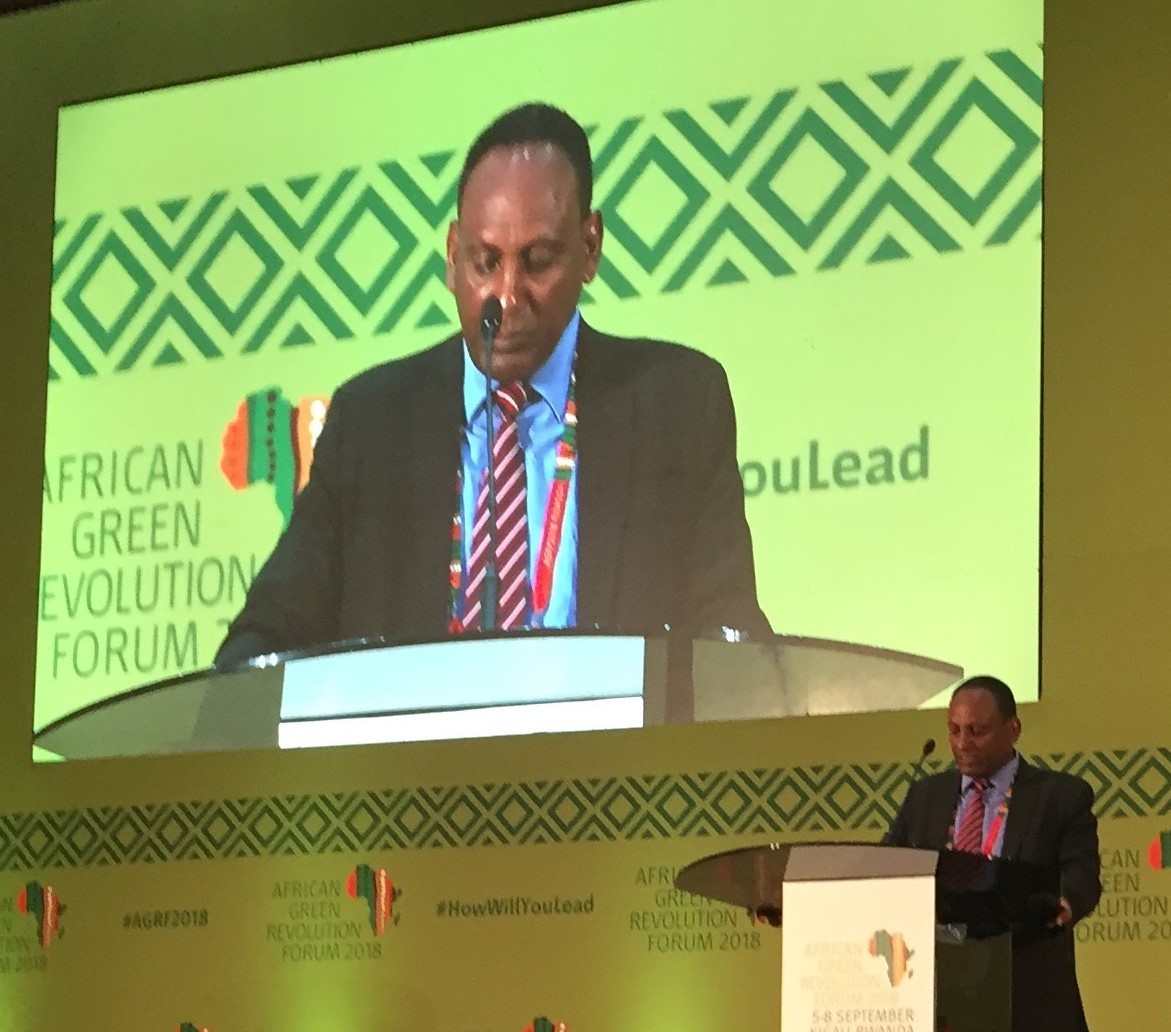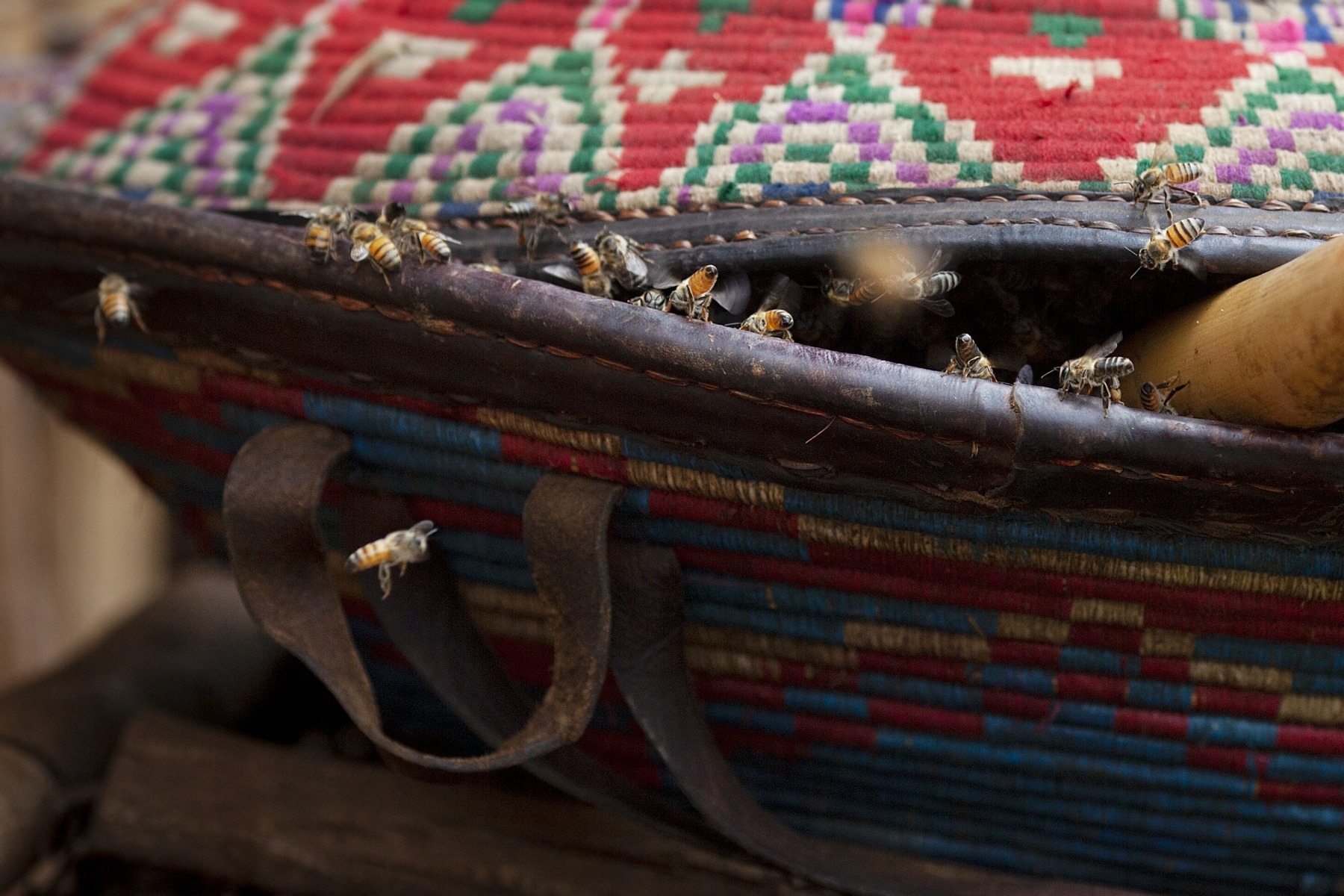First established in 2010, following a three-year series of African Green Revolution Conferences (AGRC) held in Oslo, Norway from 2006-2008, the African Green Revolution Forum (AGRF) has emerged as Africa’s leading “platform of agriculture platforms”. It brings together a range of critical stakeholders in the African agriculture landscape to discuss and commit to programs, investments, and policies that can counter the major challenges affecting the agriculture sector on the continent.
This year, the Forum took place in Kigali, Rwanda. FOLU was delighted to host the Food and Land Use Policy Symposium on the third day of the Forum, Friday 7th September.

“Africa will achieve an agricultural transformation that feeds its populations, exports surplus products to external markets and protects the natural capital on which it depends.”
In his opening remarks for the Policy Symposium, H. E. Dr Eyasu Abraha Alle (Minister of Environment and Natural Resources, Ethiopia) captured the optimism and ambition that characterised the AGRF more broadly.
Participants in the Policy Symposium shared a range of perspectives on the transformative change required to develop sustainable food and land use systems. Elsewhere at the Forum, FOLU benefited from rich conversations with policy-makers, business leaders, entrepreneurs, development finance organisation, academics and civil society representatives.
Many participants spoke of the unique and profound challenges that Africa faces. Rapid population growth, climate change impacts and systemic faults pose huge challenges and trade-offs for African agriculture to become self-sufficient, food secure and prosperous. However, there was a sense of opportunity to build sustainable agricultural systems in Africa that drive economic growth and help to deliver on global sustainable development goals.
“Subsistence farming by default is not sustainable. We will not get anywhere if we expect to transform agriculture by subsistence.”
– Ishmael Sunga (CEO, Southern African Confederation of Agricultural Unions)
The fate of smallholder farmers is central to a sustainable African agricultural transformation. Transformation must be based on sustainably increasing agricultural productivity, segmenting and supporting smallholder farmers as agri-businesses, and building a commercial agricultural system. Moreover, broader structural change must support transformation. The commercialisation of African agriculture will not be possible without systems that support inter-regional African trade. Beyond commercialising agriculture, leaders need to manage migration flows and develop urban and rural landscapes that support healthy, prosperous people and planet.
“You may expect me to preach about how bad agriculture has been for the environment. But I see things the other way around. Food is where nature meets people. So agriculture and the environment should be best friends.”
– Naoko Ishii (CEO, Global Environment Facility)
System-wide transformation is vital to address trade-offs and synergies in food and land use systems. We need to shift away from a development model that has seen higher productivity in Africa at the cost of natural resources, that has focused on volume rather than value and rural livelihoods, and that perpetuates many African countries’ dependence on imports from outside the continent. This is all the more urgent given rapid population growth and climate change, which in turn increase the pressure on agricultural systems, food security and jobs.

Photo by maxime niyomwungeri on Unsplash
“We cannot fall short on implementation because when we do, we have only ourselves to blame”
– H. E. President Paul Kagame, speaking at the Presidential Summit, AGRF
To deliver this, African countries need support to build capacity to make long-term integrated decisions in land use planning. A key requirement is more granular data: many African countries still lack the richness of data to properly understand natural resources like soil quality, land use and ownership today.
Greater investment is also needed to unlock Africa’s potential. Budgetary constraints continue to prevent African countries from investing in sustainable food and land use systems at the scale required. Increased investment should be channelled towards improved extension services, technologies and talent. At the same time, financial incentive structures need to be transformed to promote sustainable outcomes. Agricultural subsidies could be reformed to promote the production of more diverse crops and sustainable farming practices. Improved information and infrastructure systems could support regional trade.
“If we can coordinate and build trust, we can bring sustainable solutions to Ethiopian agriculture – and Africa more broadly.”
– Techane Adugna (Program Manager, Ethiopia, Synergos)
Many called for greater collaboration to create the enabling environment for transformation. Collaboration enables actors to align different interests behind a shared vision, identify opportunities and tackle trade-offs. In Ethiopia FOLU members are using a ‘cluster approach’ to bring together agribusinesses, farmers, regulatory bodies and others to discuss shared challenges, opportunities and goals. Collaboration enables decision-makers to draw on a wide range of skills and expertise. Gilbert Houngbo, speaking at the Presidential Summit on 8th September, called for a commitment to scale-up existing projects. Public private partnerships – like FOLU – are a powerful way of doing this. So too are international agreements, like the African Continental Free Trade Agreement, signed by 44 of the 55 members of the African Union in Rwanda in March 2018. Many leaders at the Forum called for further support and expansion of the agreement.
“As the centre of gravity, women should be the focus in agriculture. We need to talk about what constrains them from reaching full capacity and moving us to where we want to be in agricultural productivity.”
– Diana Louise Ofwona (Regional Director, UN Women Office for West and Central Africa)
Collaboration cannot occur solely at the high-level. Leaders must support those currently marginalised in the transformation. For example, we must equip women to actively drive agricultural transformation through their role as producers and as providers of food and nutrition for their families and communities. Many called for tracking systems that enable the naming and shaming of those countries that are not moving fast enough to improve women’s rights and status. In addition, with the youngest population in the world, we cannot talk about sustainability in Africa without talking about the youth. If we don’t include young people at the table to discuss challenges, we will continue to operate with BAU for the next 30 years.
Jeremy Oppenheim drew on these themes in an interview with pan-African CNBC show “Beyond Markets”, in which he discussed the links among biodiversity, agriculture, health, and climate change and economic growth.
The ideas and experiences shared at the African Green Revolution have convinced the FOLU Coalition of the need to develop a strategy for engaging more deeply in the continent. The core organisations seek to draft a strategy document, in close collaboration with organisations based in Africa.










